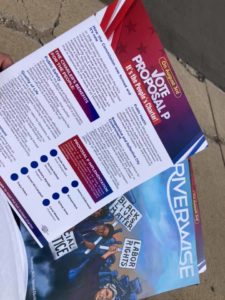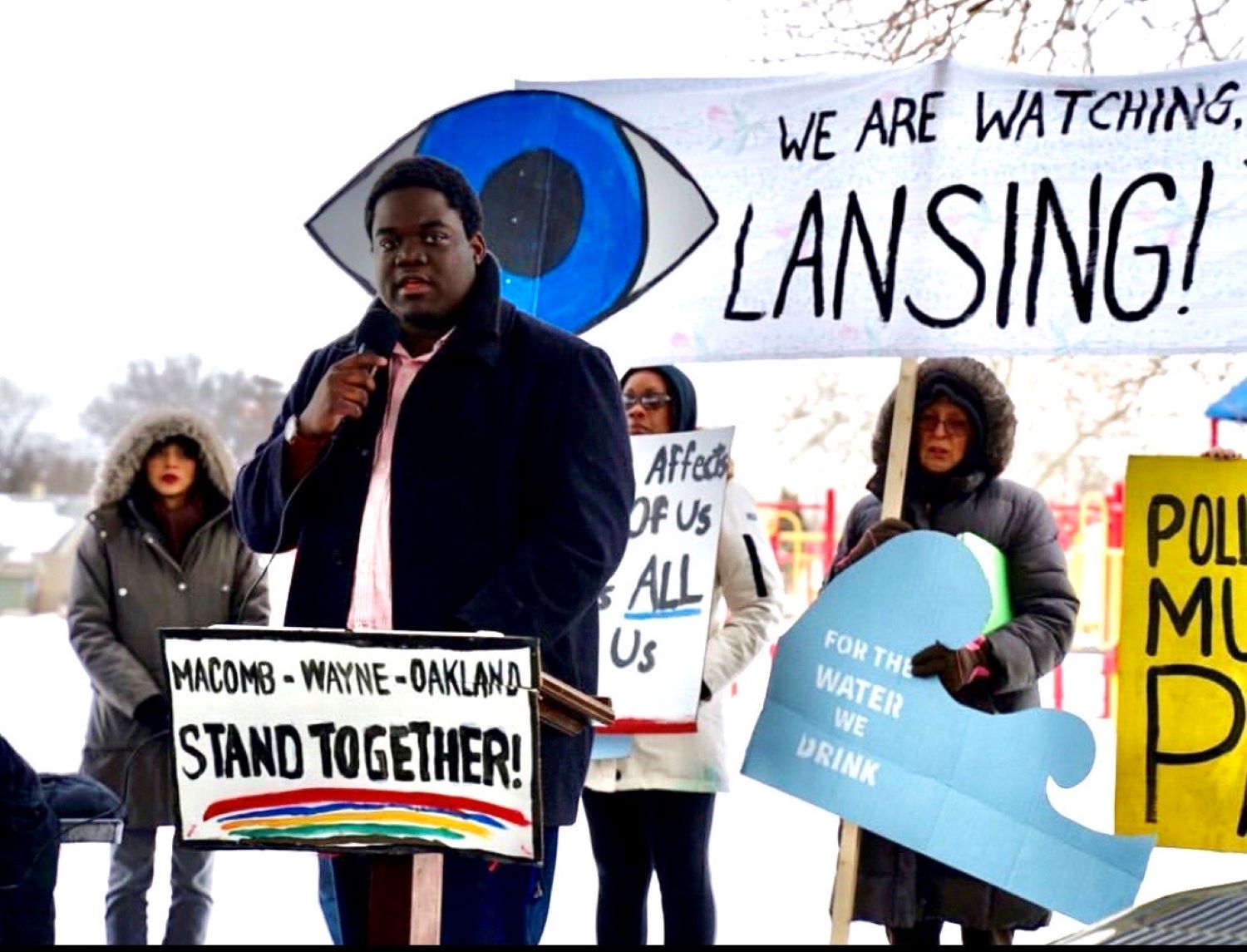This past August, when many Detroiters who had worked long and hard to help revise the City Charter learned that the passage of Proposal P had failed, they took to social media to voice their feelings, and offer ideas for the future. This article comes from a facebook post uploaded by environmental justice activist Justin Onwenu on the day after the vote.
Being a progressive in Michigan can be uhhhhhh tiring so here are some very long and very random thoughts. To be clear, these are reflections that I’ve had with myself and friends in progressive spaces for years so don’t read this as despair or an election post mortem.

- Being good on policy shouldn’t absolve progressives from the nuts and bolts of good politics (voter contact, fundraising, coalition building, constituent services, giveaway events, endorsements, ads)! Just because you’re progressive (that goes for organizers, politicians, grassroots leaders, anyone) doesn’t mean we deserve to win by default. YES, dark money in elections and in the legislative process is a problem but we have to stop pretending that those are our only roadblocks. A lot of movement folks have forgotten that unions matter, seniors vote, every election has a win number, faith is an important cornerstone of many communities, a lot of people watch TV, good tone/accessible language shouldn’t be dismissed, most people dislike inequality and are also fine with capitalism. You can be annoyed by the world as it is, you can wish that people held different beliefs, but right now progressives need to operate within reality. Abdullah Hammoud, one of Michigan’s most progressive leaders ran for mayor (and won) on lowering property taxes, stopping drag racing, and supporting small businesses and seniors. He also raised $, got union support and knocked doors. Not to oversimplify things but there’s this assumption that when progressives win or lose it’s about ideology. All politics is still local and to win you still have to do normal politics… i.e. get endorsements, contact voters, raise money and focus on issues people care about!
- Who really speaks for “the people?” For decades in movement circles there’s been this underlying assumption that non-profits and organizers are the ones really speaking for neighborhoods and for everyday working class people. We should think about this a lot more. I’d say a pastor getting hundreds of people in their sanctuary every week is a pretty effective “organizer;” I’d say a media personality that has thousands listening to their radio/tv show everyday is pretty connected to “the people;” and I’d say the elected officials (whether they’re “moderate” or “progressive”) who handily win elections probably have some sort of mandate from normal, informed voters. In a democracy elections are the ultimate measuring stick and voters aren’t stupid. We have to stop assuming that because people don’t vote the way we want that they just need more education. I do think shifting people’s ideology is important but that only happens if we’re laser focused on persuasion and enter with clear eyes about where people actually are (that includes stopping the assumption that all working class voters are progressives who just haven’t “woken up” yet).
- We need more grassroots leaders in political spaces. I’ve spent a decent amount of time in both progressive movement spaces and also DNC/Michigan Democratic Party spaces and there are huge gaps. I do think that some party loyalists treat politics as a hobby/sport and need to be more focused on how democrats should actually use power to improve lives (not just win elections years away). With that said, the vast majority of people who participate in normal dem party stuff (becoming a precinct delegate, attending DNC conventions, registering voters, etc) do so because they really do care and are invested in making our country better. There’s nothing to be afraid of, we just need well-organized progressives to show up more. Dana Nessel, the most progressive Attorney General Michigan has seen, beat the odds on favorite in the 2018 AG primary and she had to go to a lot of normal “democrat establishment” meetings to do so. Pressuring lawmakers from the outside without at least trying to build relationships has undermined our movement a lot.
- We need to focus on relevant issues. There’s a lot to fight for. Detroiters were overtaxed hundreds of millions of dollars, thousands of Michiganders have dealt with water shutoffs, families throughout the US are still dealing with natural disasters. These are issues that I think movement leaders and residents are pretty aligned on. But we can do better and we need to think more deeply about what issues we’re focusing on, WHO we’re speaking to and HOW we should communicate on those issues. If people say crime and street racing keep them up at night then we need to have an actual strategy for responding to addressing this frustration. These aren’t things to paper over with talking points or broad social theories.
Again, this is not a despair or giving-up post. There are progressive lawmakers who are doing amazing work, there are grassroots organizations who continue to build deeply rooted relationships across the state, there are grassroots leaders who continue to make miracles happen year after year, and there are amazing candidates in Detroit and throughout MI who just advanced to the general election. I feel hopeful overall but these things have been on my mind for some time. Thoughts?
Justin’s Bio:
Justin holds a BA in International Health and Policy from Rice University and is a Columbia Law Class of 2024 student from Detroit Michigan. In 2020 he served as a White House Intern for the Council on Environmental Quality. Appointed by Michigan Governor Gretchen Whitmer, he currently serves as the youngest member of the Michigan Advisory Council on Environmental Justice and Black Leadership Advisory Council. In 2020, he served as a Democratic National Committee Convention Delegate and was appointed to the DNC’s Environment and Climate Crisis Council.


